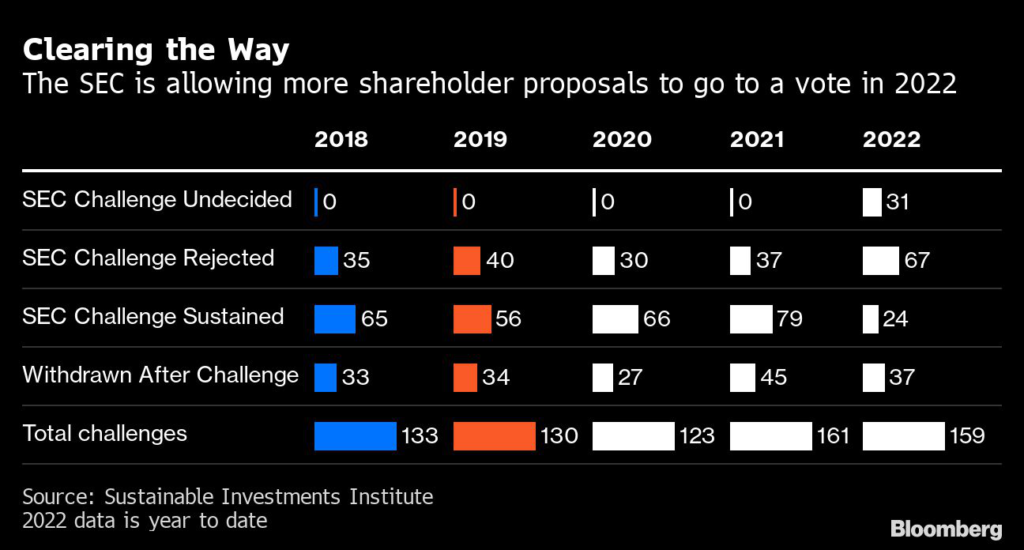(Bloomberg) — Meta Platforms Inc. will face a shareholder mandate on whether its planned metaverse virtual world is good for society.
The U.S. Securities and Exchange Commission rejected a request by Meta to quash a proposal from Arjuna Capital LLC asking for a third-party evaluation of the potential psychological, civil and human rights harms of the metaverse. Arjuna wants the company to demonstrate whether any harms could be mitigated or avoided or whether they are simply inherent to the technology. The proposal will now be included in the upcoming list of issues shareholders will vote on at the annual general meeting.
While Meta acknowledges there are risks from the creation of virtual worlds, it argued that the proposal shouldn’t go for a vote because it involved matters related to the company’s “ordinary business operations” which are excluded from shareholder votes. The SEC ruled that the proposal “transcends ordinary business matters.” The proposal, which is unlikely to pass because Chief Executive Officer Mark Zuckerberg controls the voting shares, will come to shareholders later this year.
“Yes, Zuckerberg is emperor at Facebook, but they are facing a lot of headwinds, so it’s not written in stone that Meta will continue in this form forever,” Natasha Lamb, a managing partner at Arjuna Capital, said in an interview. “They are pumping $10 billion a year into a new project when it’s quite obvious they can’t handle their current platform.”
Over the past year, the metaverse — a plan for interconnected virtual worlds — has become an increasing focus for the social media giant. The company, previously known as Facebook Inc., changed its name to Meta in October to underscore the shift. At the same time, concern has grown that the risks already inherent in social media may be amplified in a virtual space.
Meta is still reeling from fallout related to the trove of internal documents that whistleblower Frances Haugen shared with journalists and authorities that suggested Facebook prioritizes profit over content moderation. Facebook’s own research about the harms of Instagram use among young people was one of the most explosive aspects of Haugen’s revelations. Congress and federal enforcement agencies have spent the last several years formulating their own plans to hold Facebook to account, with nothing much to show for it.
Meta declined to comment on the SEC ruling. The company has said it doesn’t plan to develop the metaverse on its own, and will collaborate with policymakers, experts and industry partners. As part of the initiative, Meta said it will invest $50 million to help ensure the space is developed responsibly, including a focus on privacy, safety, equity and inclusion.
“We’re not saying that nobody should be developing a metaverse,” Lamb said. “What we’re saying is, is Meta the right company to do this when they are so poorly governed and clearly can’t handle what they have in front of them already? Do they have the social license to do this or do they not?”
Meta isn’t alone in losing an appeal to the SEC. The agency is rejecting more requests from companies to exclude resolutions related to environmental and social issues from the ballot after a rule change last November that overturned guidance under President Donald Trump that made it easier for companies to block them. The agency said that it would start to include broader social policy considerations when reviewing requests from corporations to exclude proposals that they deemed to be interfering with regular business operations.
Meta is among the companies including Amazon.com Inc., McDonalds Corp., Chevron Corp. and JPMorgan Chase & Co. that failed to convince the SEC to block shareholder proposals for the upcoming proxy season. The regulator has so far blocked 15% of shareholder resolutions for the season compared with 49% last year and 54% in 2020, according to Sustainable Investments Institute, a research firm that tracks shareholder proposals.
More stories like this are available on bloomberg.com
©2022 Bloomberg L.P.











